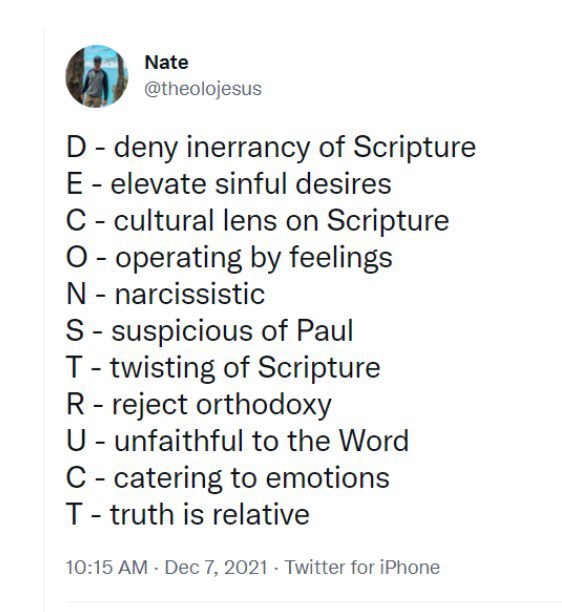
Evangelicalism has a deconstruction crisis. I know they do based on the sheer number of articles, blog posts, podcasts, and sermons churned out by Evangelical taking heads, warning that deconstruction is okay as long as it keeps your ass in the pew and your tithe in the offering place.
Evangelical rapper Lecrae described deconstruction like this:
Deconstruction is not a bad thing if it leads to reconstruction. Sometimes you have to demolish a building that has mold and then build something else on that foundation. We’re not getting rid of the foundation. The foundation is Christ. But we’re building on that foundation and tearing down some things that were unnecessary.
Of course, Evangelical preachers wish deconstruction would go away altogether. They see it as a product of postmodernism, with its questions and doubts. They wish for a return to the good old days of the 1950s, but an increasing number of Evangelicals refuse to buy what preachers are selling. Deconstruction begins with seeking answers to unanswered questions. Evangelicals often turn to their pastors, parents, and fellow church members first, hoping to find answers to their questions. Instead, they are served up warmed-over rote answers, complete with appeals to the Bible. When these “answers” fail to assuage inquiring minds filled with questions, preachers often turn to fear, warning deconstructionists of the danger of wandering outside of the Evangelical bubble. Hell and judgment, being powerful motivations to conform, will sometimes put an end to deconstruction. PRAISE JESUS, another loss averted. Please make that check out to “First Baptist Church.”
An increasing number of Evangelicals ignore the paternalistic warnings of their pastors and continue seeking answers to their doubts and questions. These folks typically leave the fold, never to return. Tired of cheap, easy answers, they seek out people who will tell them the truth with no strings attached. I have helped countless people along their deconstruction journey. I don’t have an agenda. I am not interested in turning them into atheists. I don’t want their money. I just want to share my story and, if possible, answer whatever questions they might have. And if I can’t, I recommend books that might help him. My goal is to help facilitate their journey, knowing that the journey is far more important than the destination. Can any Evangelical preacher say the same thing?
Many Evangelical preachers can’t imagine a world where God, Jesus, or the Bible are called into question. Questions and doubts are from the Devil or signs of worldliness. Sure, it is okay to question whether Paul wrote the book of Hebrews, but, by God, we must not question the inerrancy and infallibility of the Bible. There are certain foundational “truths” in Evangelicalism that must never, never be challenged or questioned. Deconstruction demands that no subject be off-limits. Post-modernity is coming for Evangelicalism, and unless they rethink their defense, deconstruction will only increase, both among the laity and the clergy.
Bruce Gerencser, 68, lives in rural Northwest Ohio with his wife of 47 years. He and his wife have six grown children and sixteen grandchildren. Bruce pastored Evangelical churches for twenty-five years in Ohio, Texas, and Michigan. Bruce left the ministry in 2005, and in 2008 he left Christianity. Bruce is now a humanist and an atheist.
Your comments are welcome and appreciated. All first-time comments are moderated. Please read the commenting rules before commenting.
You can email Bruce via the Contact Form.
